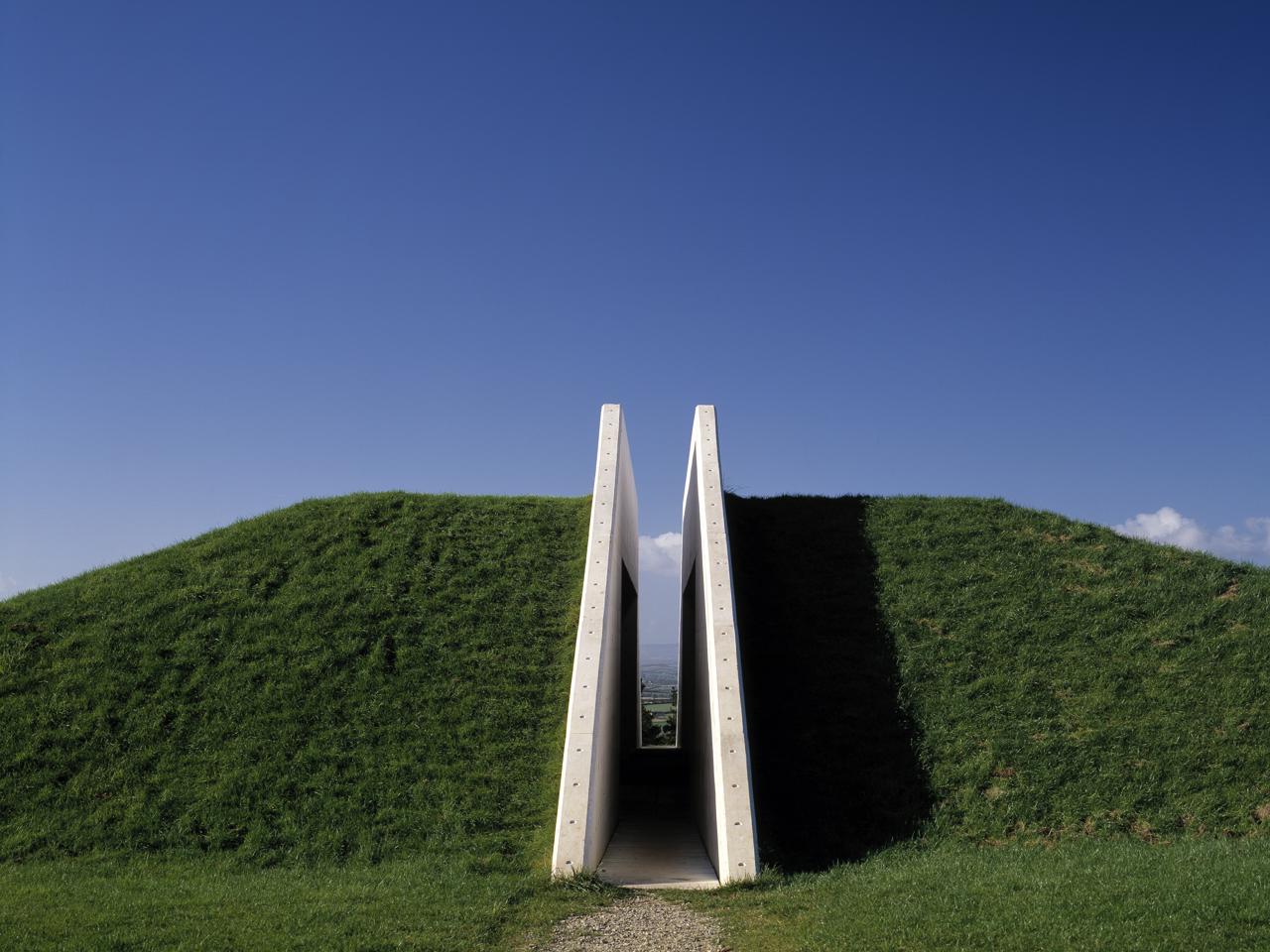
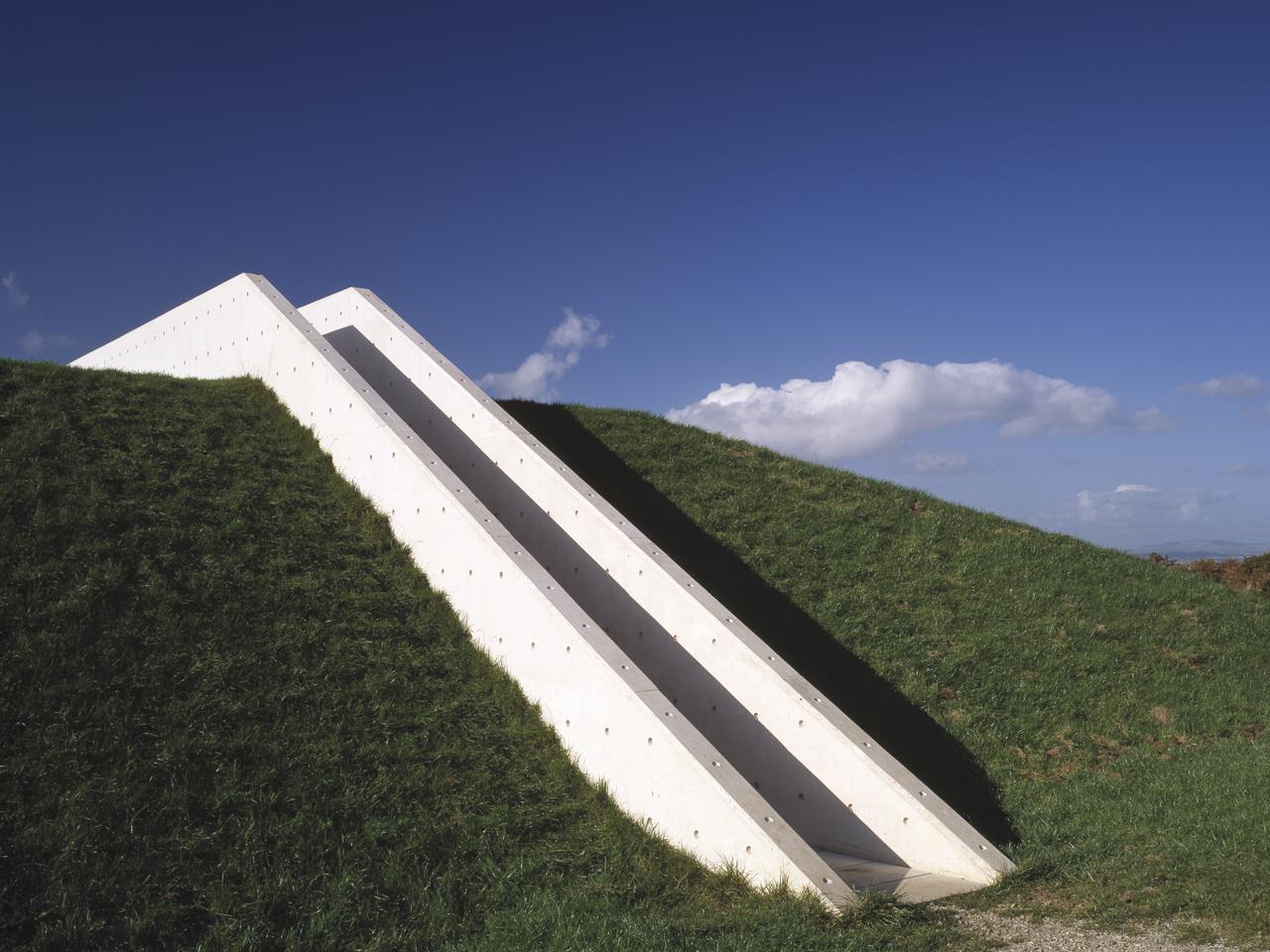
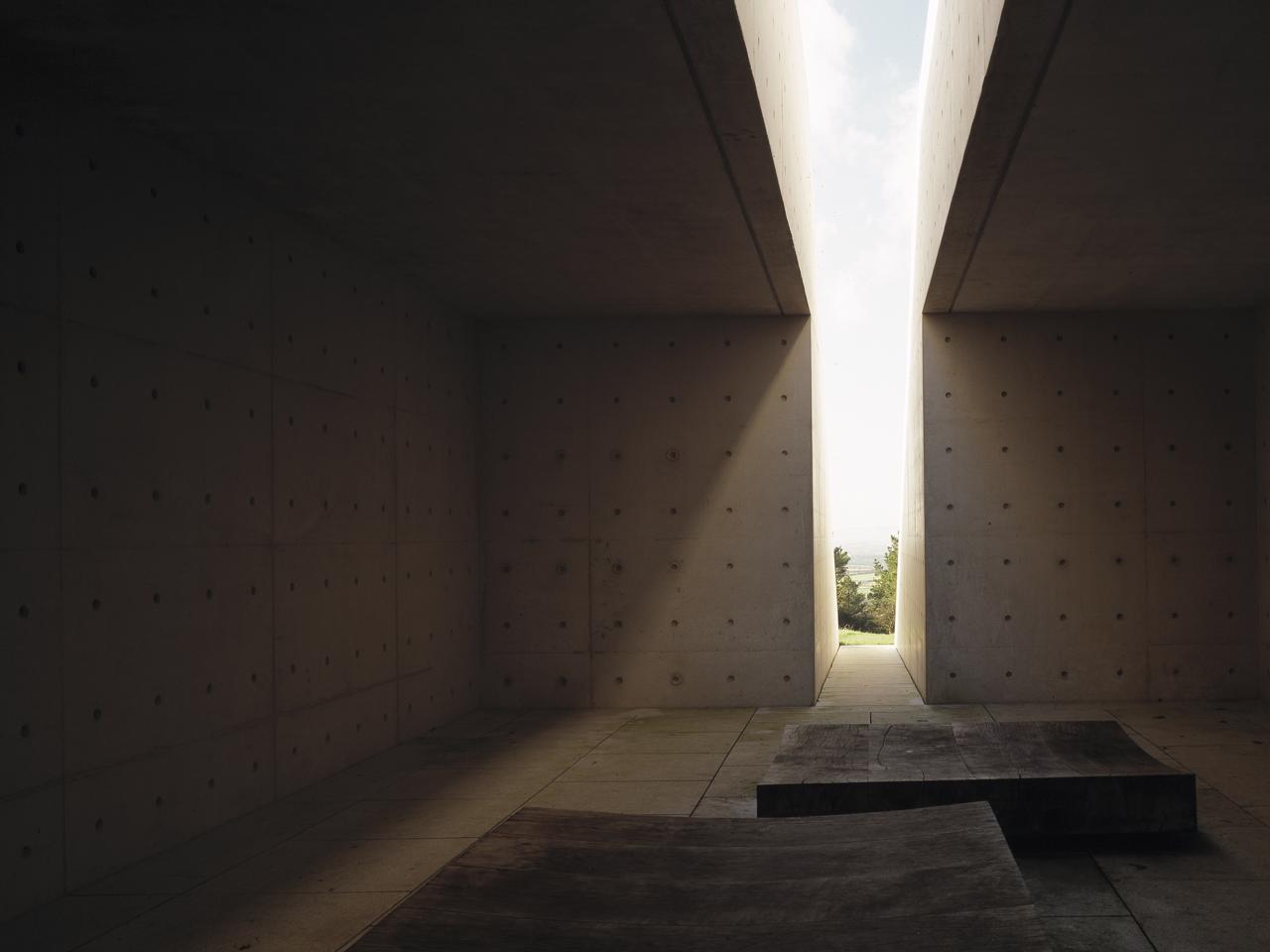
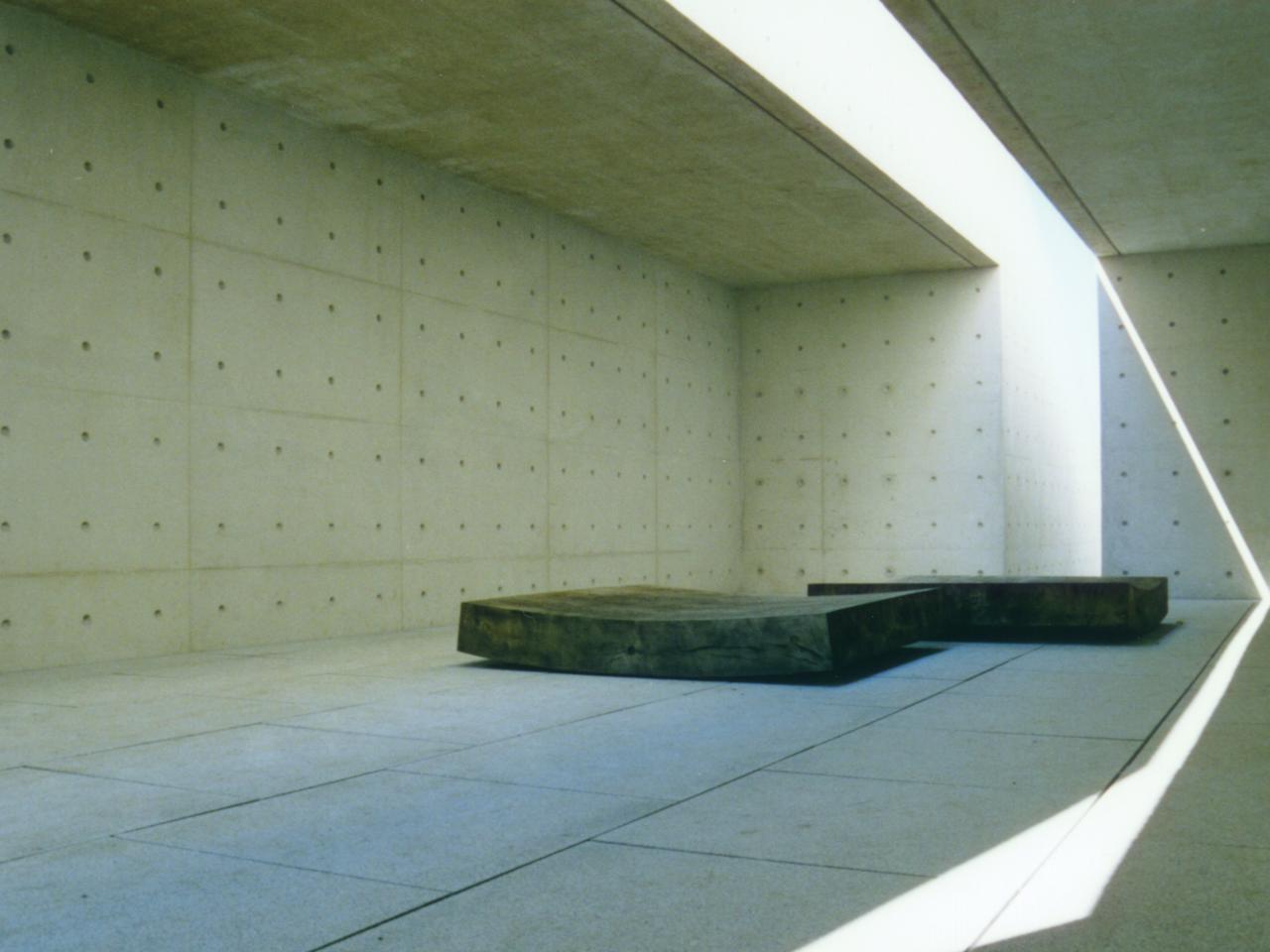
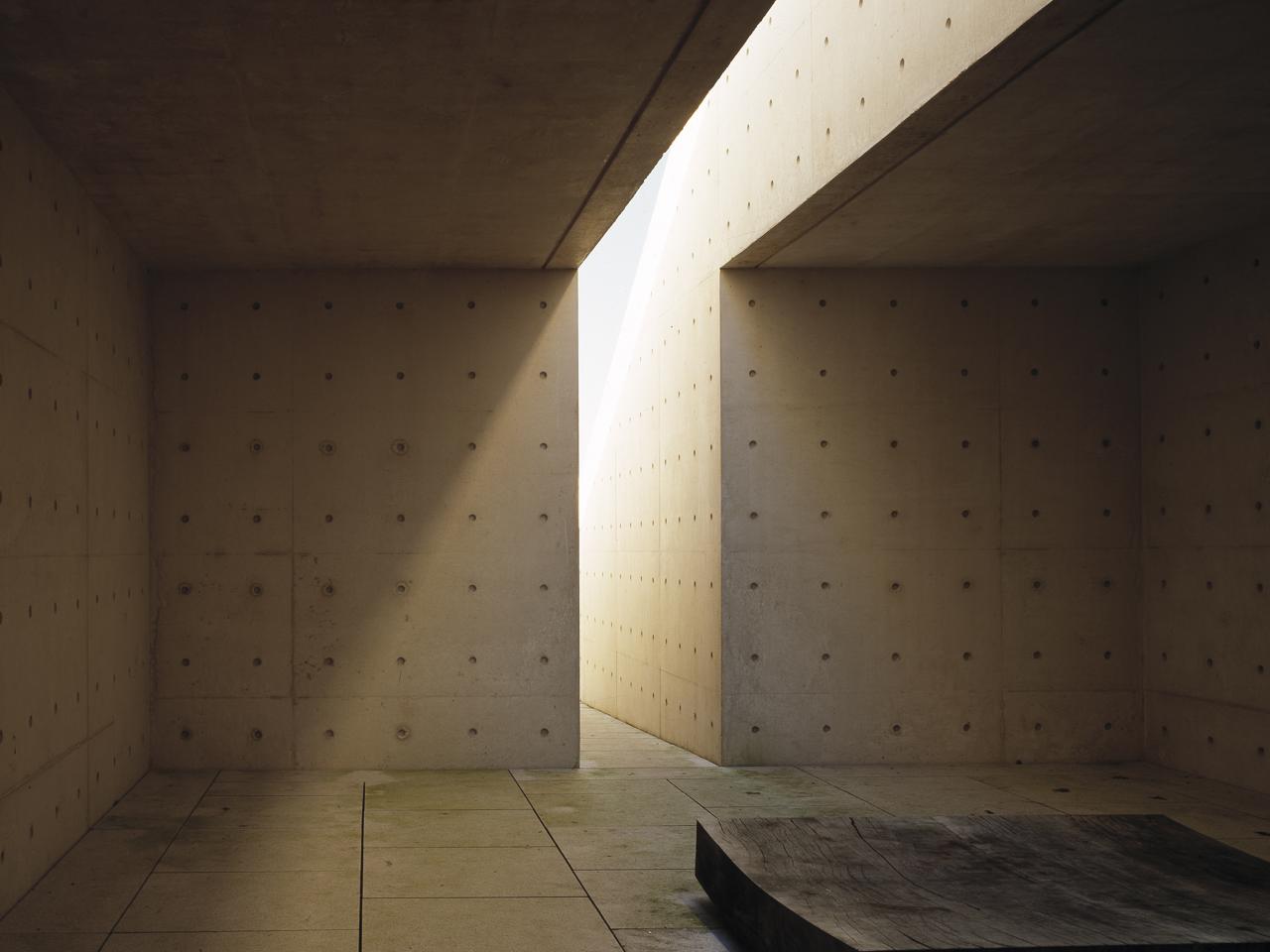
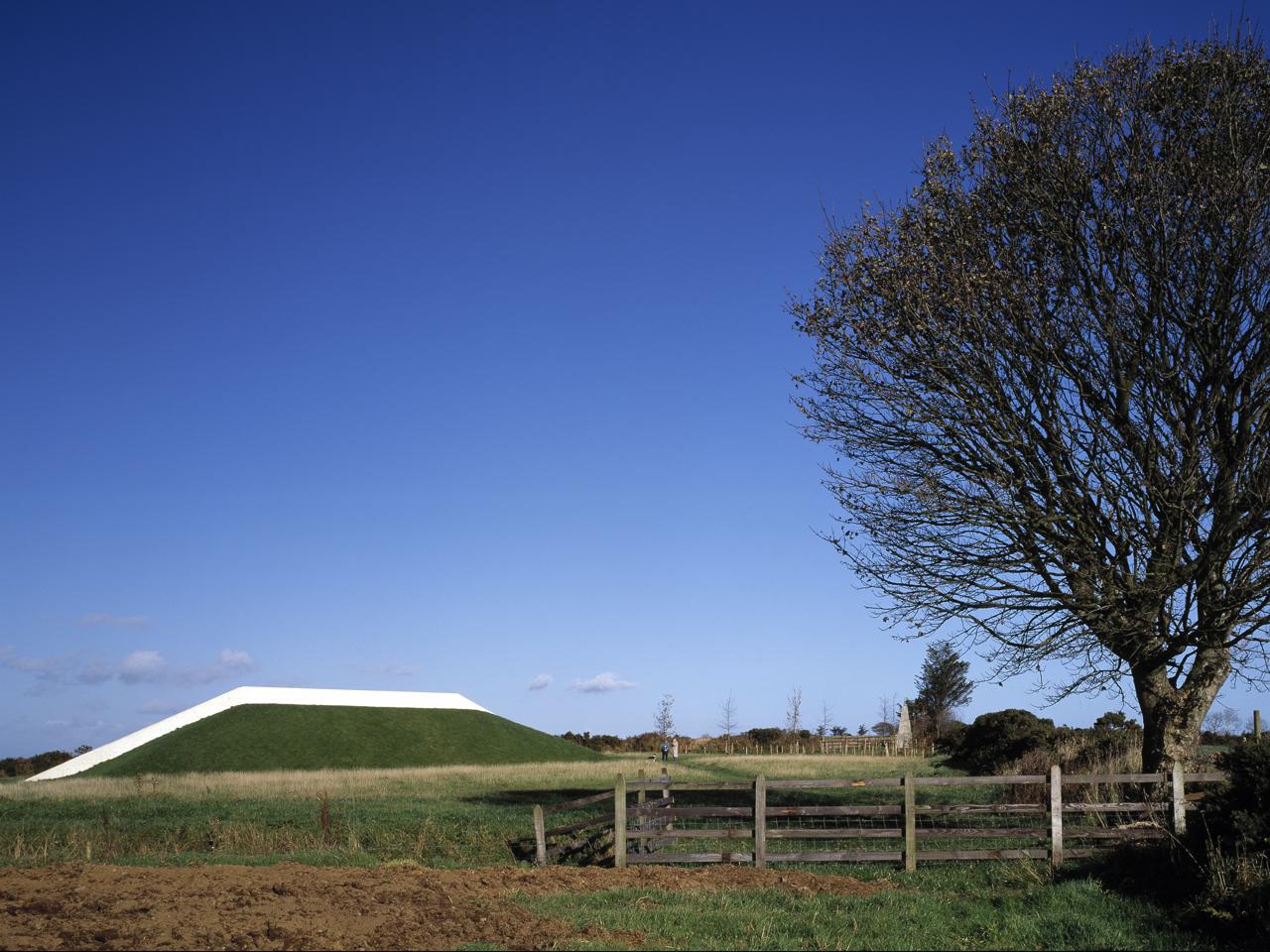






Gold Medal
Royal Institute of the Architects of Ireland
0
Client
Tulach a' tSolais Committee Co. Wexford
Location
Co.Wexford, Ireland
Status
In Use
Area
0
Upon arrival, there are no carved names, no flames, no pools of water. This is a much older kind of memorial. Warren recalls Tallon saying, "What we want, Michael, is to go over a broken stone wall and be there. The approach should be like the surprise of finding a fairy ring."Tallon chose white concrete for its "pallor of death", illuminated by "the light of resurrection." "We wanted a basic monolithic material of strength and nobility," says Tallon, "with which to create a modern Stonehenge."
Tallon calls Warren's two sculptures - horizontal curving tablets of 200-year-old Irish oak that make a shrine of the interior - "upturned hands, offering hope for the future." Warren likens them to the cremation bowls found in Newgrange.
Mathematical, abstract, without apparent function and totally memorable, the chamber adheres to the classical laws of harmonic proportion. On plan, it is a double square. A cut through the chamber reveals the golden section: the ratio of its height to width equals the ratio of its width to the sum of its height and width.
mail@stwarchitects.com
+353 (0)1 6693000
london@stwarchitects.com
+44 (0)20 7589 4949
cork@stwarchitects.com
+353 (0)21 4320744
galway@stwarchitects.com
+353 (0)91 564881